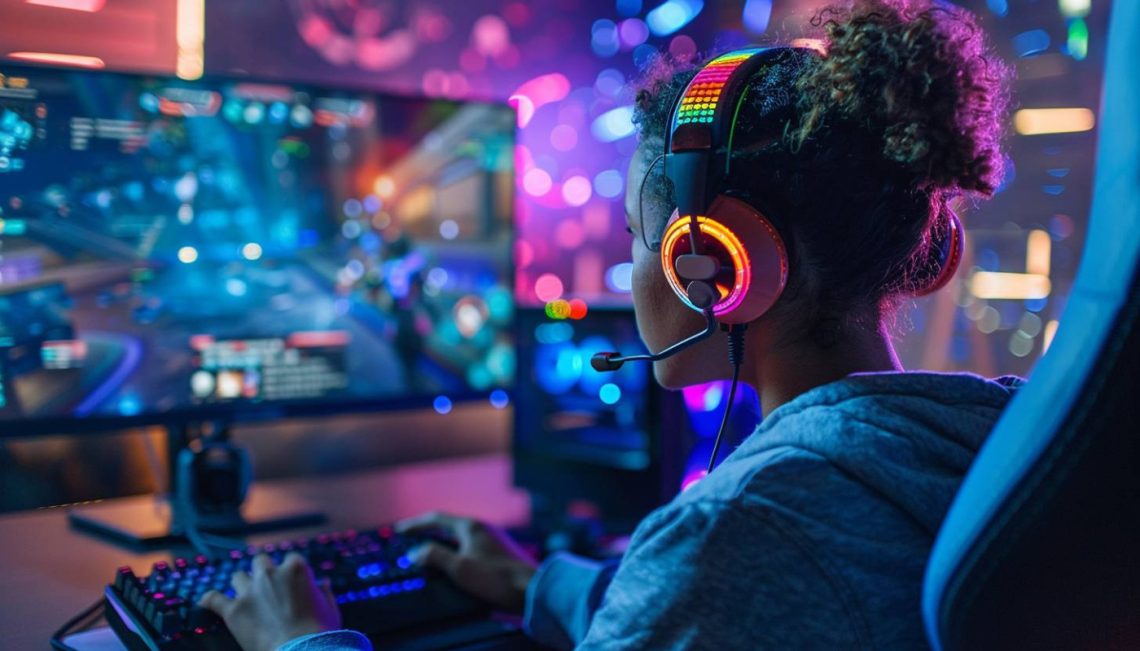Online gaming has evolved from a niche hobby into a global cultural phenomenon, reshaping entertainment, social interactions, and even industries https://derry-chamber.org. From the first rudimentary multiplayer games that allowed friends to compete on local networks to the vast, immersive virtual worlds of today, online gaming has had a profound impact on technology and society.
The Rise of Online Gaming
In the early days of video games, playing with others was mostly confined to local multiplayer experiences, with friends or family sitting side by side. But as internet speeds improved and online connectivity became more widespread in the late 1990s and early 2000s, gaming began to shift to an online environment. Games like Warcraft II, Quake, and StarCraft marked the dawn of online multiplayer experiences, allowing players to connect over the internet for the first time, regardless of physical location.
However, it was the success of games such as World of Warcraft (2004), League of Legends (2009), and Fortnite (2017) that truly transformed the gaming industry. These games expanded the scope of online gaming, not only by enabling massive multiplayer worlds but also by creating persistent environments where players could invest hours, days, or even years of their lives.
The Growth of Esports
One of the most significant developments in the online gaming world has been the rise of esports. What was once a pastime enjoyed in the privacy of bedrooms and gaming lounges has now become a multimillion-dollar global industry. Competitive gaming, or esports, includes professional players, teams, coaches, and analysts, all working together to compete at the highest levels of digital sport.
Esports events draw millions of viewers worldwide. Titles like Dota 2, Counter-Strike: Global Offensive, League of Legends, and Overwatch have all become pillars of the esports community. Major events like the League of Legends World Championship and The International (Dota 2’s premier tournament) fill arenas and generate substantial revenue through sponsorships, merchandise, and media rights. Players now earn six-figure salaries, and esports leagues have become professional, well-established career paths.
The Social Side of Online Gaming
Gaming has become one of the most popular ways to socialize in the 21st century. Unlike traditional gaming, which often had a solitary or local component, online gaming fosters relationships between individuals across different countries and cultures. Titles like Fortnite, Minecraft, and Roblox are examples of games that allow players to collaborate, compete, and communicate with each other in real time.
The rise of voice chat, video streaming, and social media platforms has made the experience even more immersive. Streaming platforms like Twitch and YouTube have also played an essential role in shaping the online gaming culture. These platforms allow players to share their gaming experiences with millions of fans, turning casual play into full-time careers for some streamers.
Social interactions in online games can range from cooperative play, where players team up to tackle in-game challenges, to competitive encounters where the focus is on defeating opponents. Many gamers form long-lasting friendships through these experiences, with some even meeting in person after years of playing together online.
Gaming as a Global Economy
The online gaming industry has grown into a significant global economic force. In 2024, the gaming industry is projected to generate over $200 billion in revenue, surpassing both the film and music industries combined. This growth is fueled by various factors, including the increase in mobile gaming, microtransactions, and the expansion of gaming into emerging markets.





